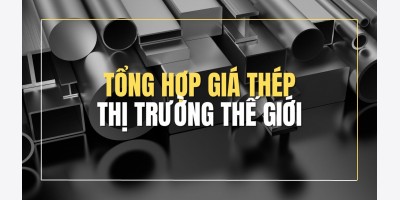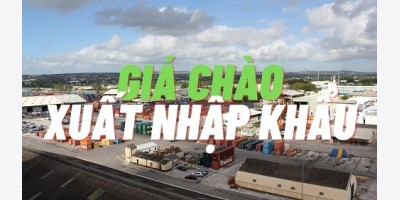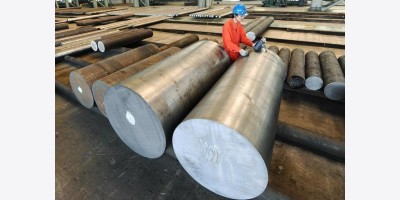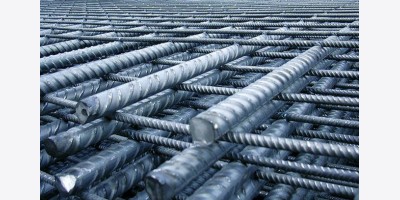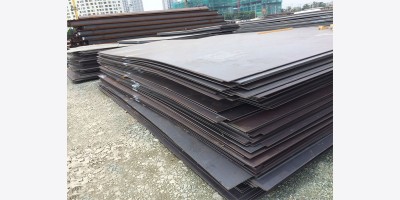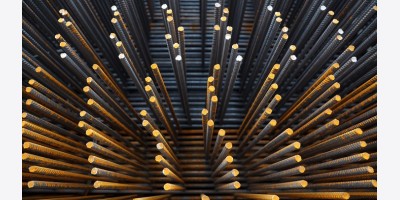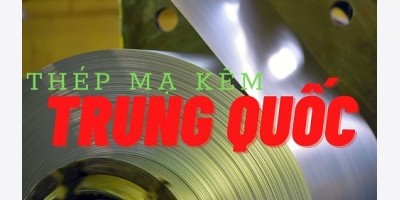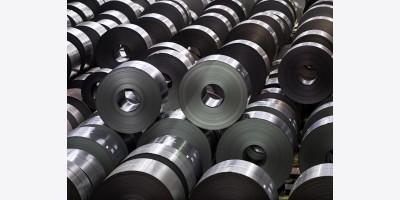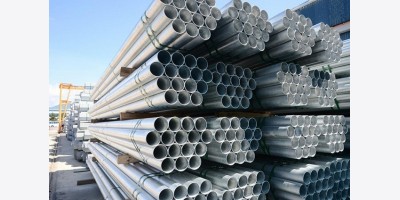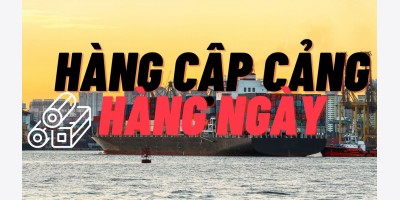| ArcelorMittal ships 45% less steel in Q1 | ||||||||||||||||||||||||||||||||||||||||||
Worldwide, ArcelorMittal shipped 45% less steel during the first quarter of 2009 compared to Q1 2008. The group’s total shipments were 16m tonnes in the first three months of 2009 compared to 17.1m t in Q4 2008 and 29.2m t in Q1 2008. The largest year-on-year Q1 fall of nearly 53% was posted by the group's flat carbon Americas division, Steel Business Briefing calculates [see table]. At $15.1bn, Q1 turnover declined 50% year-on year, and was also down from $22bn in Q4 2008. Last year’s Q1 operating profit of $3.6bn has turned into a near $1.5bn loss, which at least is an improvement on Q4’s operating loss of $3.5bn. In a bid to improve its balance sheet, ArcelorMittal noted that industrial optimisation measures had brought over $6bn of annualised temporary fixed cost reductions in Q1, and that these would grow to over $7.5bn by Q2 on an annualised basis. “Strong measures have been taken to reduce our costs considerably and liquidity remains healthy with an extended debt maturity profile,” comments Lakshmi Mittal, group chairman and CEO. “Although market conditions remain challenging, a technical recovery is inevitable and ArcelorMittal will benefit from this,” he adds.
| | |||||||||||||||||||||||||||||||||||||||||
| | ||||||||||||||||||||||||||||||||||||||||||
| | | |||||||||||||||||||||||||||||||||||||||||
| S. European sections prices up, but demand still weak | | |||||||||||||||||||||||||||||||||||||||||
Sections and merchant bar prices appear to have increased over the last few weeks in Southern Europe, however demand levels are still not sufficient enough to support it, Steel Business Briefing learns from market sources in the region. Producers have been attempting to implement price increases for sections across Europe, including Spain’s Celsa and Gallardo Sections, both setting €30/tonne rises. However whether these newly elevated prices will be accepted is still debatable. “Yes prices are climbing slowly,” says an Italian producer. “Scrap is going up also and improved weather conditions are more favourable to the construction sector.” Nevertheless demand still remains at low levels and has not increased at the same rate as prices have. “Demand is marginally showing signs of life. People are starting to buy a little more than they need, as opposed to not buying at all. However it is not booming,” says another southern European producer. Prices for sections and merchant bars are at similar levels in both Italy and Spain taking into account increased extras. But the parameters of southern Europe prices still remain similar to last month with merchant bar between €390-440/t and sections at €395-450/t. For May there are mixed feelings about whether these increases will consolidate, with some sources saying they will be accepted and prices will continue climbing slowly as scrap prices will increase further also with hopes of another €30/t increase for sections. But others are not convinced the increased levels will be maintained as demand is lacking.
| | |||||||||||||||||||||||||||||||||||||||||
| | ||||||||||||||||||||||||||||||||||||||||||
| | | |||||||||||||||||||||||||||||||||||||||||
| Longs + stainless lead destocking and price rises: Mittal | | |||||||||||||||||||||||||||||||||||||||||
| Long products used in construction are picking up in several regions because of seasonal factors, says Gonzalo Urquijo, ArcelorMittal’s top executive for longs, China, stainless and tubular products. The second quarter is always better for construction, he adds, referring to rebar, merchant bar and structurals. ArcelorMittal will be discussing customers’ needs over the coming weeks and anticipates price rises for longs through to Q3. This follows a general increase of “some $50/tonne”, adds group executive Michel Wurth. The sector has seen improvements in the Middle East and South America, says Urquijo. India’s market is also good, and on the rise. Scrap is rising in Europe, although not in the US. While there has been “very significant destocking” in US longs, with inventories now low, the demand is not there, he tells Steel Business Briefing. Other areas where destocking is further progressed include stainless, he notes: “we have already seen stainless prices rise by €130/t ($170/t), although clearly we were coming from the lowest base prices since 1994.” Europe, however, is behind in its destocking, which will continue to the end of Q2, adds Lakshmi Mittal, group CEO. European flats inventories may be at their lowest, but more consumption is needed, he tells SBB. Nonetheless, some improvements in flats prices in southern Europe are encouraging, says Wurth, head of flat carbon Europe. Europe’s price discrepancies between east and west and north and south are reducing. EU flats demand will remain weak in Q2, and inventories must continue to fall before there can be any general price rises, adds Wurth.
| | |||||||||||||||||||||||||||||||||||||||||
| | ||||||||||||||||||||||||||||||||||||||||||
| | | |||||||||||||||||||||||||||||||||||||||||
| SE Asian imported rebar prices creeping upwards | | |||||||||||||||||||||||||||||||||||||||||
| Importers of rebar in Singapore have raised their booking prices to $450/tonne cfr for both Taiwanese- and Korean-origin rebar. Mills exporting to the region are now seeking a higher price of around $470/t cfr. Some trading sources claim that several thousand tonnes of Korean rebar for May/June shipment were recently booked at $465-470/t cfr Singapore. But others say that, in general, these higher prices are not being accepted because domestic prices in Singapore are prevailing at the equivalent of $480-485/t delivered, which leaves insufficient margins for importers. Mills are raising their prices on the back of higher scrap costs. But buyers are cautious because they question whether rising prices will be sustainable and can be supported by demand. "Buyers are aware that these new offers are for June shipments, which is some time away," a trader in Singapore tells Steel Business Briefing. There are no positive signs of a pick-up because the property sector is still weak, he adds. "Prices are creeping up but buying is not in large volumes like last year," a trader in Hong Kong says. Recent bookings of imported rebar from Taiwan and Korea took place at $440-450/t cfr Hong Kong. There are no offers for other origin rebar to the region. Turkish rebar is no longer competitive there. Traders tell SBB that the Turkish mills are aiming for an export price of around $480/t fob which would translate to $530/t cfr.
| | |||||||||||||||||||||||||||||||||||||||||
| | ||||||||||||||||||||||||||||||||||||||||||
| | | |||||||||||||||||||||||||||||||||||||||||
| More companies expect prices to rise: The Steel Index | | |||||||||||||||||||||||||||||||||||||||||
The latest market survey results from The Steel Index show that more US, European and Asian companies have higher stocks than in the previous week. There was a significant increase in European companies with higher inventories. However, fewer US companies are expecting higher demand in the next three months, while more companies globally expect higher prices. 25% of US companies reported higher inventories, while 42% had lower inventories compared with the previous week, down from 50%. In Europe 16% of respondents had higher inventory, up from 8%, and a nearly unchanged 35% had lower inventory. Expectations for higher demand fell sharply in the US since last week, with 30% of US companies expecting better off-take in the next three months, down from 47%. Elsewhere, sentiment is broadly unchanged with one-third of companies anticipating higher off-take and 23% of respondents expecting lower demand. On average 24% of companies expect higher prices in the next three months, up from 19%, while 29% expect lower prices. 55% of US companies expect lower prices during the next three months, up from 42%, while 19% of respondents expect higher prices. There was an increase to 60% of European companies who expect stable prices, while 23% anticipate higher prices. The Steel Index - www.thesteelindex.com - is a weekly steel reference price service owned by Steel Business Briefing.
| | |||||||||||||||||||||||||||||||||||||||||
| | ||||||||||||||||||||||||||||||||||||||||||
| | | |||||||||||||||||||||||||||||||||||||||||
| Iran adds new capacity with aim of replacing imports | | |||||||||||||||||||||||||||||||||||||||||
| Iran plans to increase annual raw steel production to 18m tonnes in the next six months with the aim of ceasing steel imports, Samiei Nejad , deputy mines and industries minister, has announced. Iran produced 1m t of raw steel in March, up 14% year-on-year, and an industry specialist tells Steel Business Briefing that national capacity will be increased in the next few months with the start-up of new plants. Semis producer Khouzestan Steel has increased its capacity to 3.2m tonnes/year from 2.4m t/y after recently commissioning a new ironmaking module and other installations. Esfahan Steel Co, the country’s biggest long products producer, will install a new blast furnace to add 1.4m t/y of steel production capacity and Khorasan Steel, another longs mill in the north of Iran, is following an expansion project to increase its capacity to 2m t/y from 0.6m t/y currently. There are also about 21m t/y of new capacity projects in different stages of implementation, including eight new crude steel production sites in Iran’s less developed provinces. These sites will have a capacity of 1m t/y each, thus adding some 8m annual tonnes of crude steel capacity altogether. All but one of these plants – the slab producer at Brojen – will produce blooms and billet. SBB is told that Nejad’s forecast of replacing all imports within six months may be a little over-optimistic, but Iran should come much closer to self-sufficiency within next twelve months. The country’s consumption of steel is about 20m t/y.
| | |||||||||||||||||||||||||||||||||||||||||
| | ||||||||||||||||||||||||||||||||||||||||||
| | | |||||||||||||||||||||||||||||||||||||||||
| Merger activity forecast to remain slow in 2009 | | |||||||||||||||||||||||||||||||||||||||||
| Merger and acquisition (M&A) activity in the global steel industry will remain becalmed for the best part of 2009 as tight credit lines and the weak market dissuade companies from pursuing deals, according to financial services firm Deloitte. In the first half of 2008 the number of deals was 108 and only 14 deals were closed in the Q1 2009, Steel Business Briefing notes. 73% of respondents to a Deloitte survey believe their companies are likely to assess the implications of decreased liquidity and the higher cost of capital, leading to cautious buying attitudes. A massive 88% of respondents say lowering costs is an extremely important part of their current business strategy. There will also be a big fall in the average value of completed deals because of tight credit lines and lower company valuations. However, deals are still happening and it is a buyer’s market with bargains to be had, according to Deloitte. “Cash-rich companies with low debt will most likely use the current crisis to acquire businesses deemed ‘non-core’ by competitors or smaller companies weakened by the financial turmoil,” it adds.
| | |||||||||||||||||||||||||||||||||||||||||
| | ||||||||||||||||||||||||||||||||||||||||||
| | | |||||||||||||||||||||||||||||||||||||||||
| US WF beam market could see demand, prices up by Q3 | | |||||||||||||||||||||||||||||||||||||||||
| US market sources say the bottom for beams is in sight, as feasible import offers dry up and scrap prices rise. Some tell Steel Business Briefing year-end prices could be around $900/short ton for medium wide flange beams, up considerably from current list prices from market leaders Nucor and Steel Dynamics Inc of around $695/s.t, but still down from a peak of more than $1,170/s.t last year. "I think the mills are holding close to list unless someone has a good-sized order to place, but there are not many of those around," said a US trader. "Import offers are down ... and what is being offered on import is not that attractive price-wise. The last pricing was too close to domestic levels to be of much interest." A US mill source said he also sees "pricing at or near the bottom, however, the threat of imports is still real, particularly from an irresponsibly discounting Nafta 'partner' . . . Mexico." "This 'partner' may help keep market pricing where it is for a bit longer," he said. "We will be pursuing antidumping suits in North America and may include a Nafta 'partner.'" Mexico continues to be among the leading beam exporters to the US, sending more than 4,600 tonnes in March alone - nearly 30% of overall American beam imports that month, according to preliminary government data. The trader source said demand could improve by the third quarter, with pricing of "$850-$900/s.t possible by year-end."
| | |||||||||||||||||||||||||||||||||||||||||
| | ||||||||||||||||||||||||||||||||||||||||||
| | | |||||||||||||||||||||||||||||||||||||||||
| Evraz: covenant breach possible if slowdown persists | | |||||||||||||||||||||||||||||||||||||||||
| Evraz Group warned this week of the potential for breaching certain loan covenants if current market conditions do not improve and the ongoing global financial crisis continues, Steel Business Briefing learns from the company's 2008 consolidated financial statements. The Russian iron and steel company, which acquired Claymont Steel of the US and IPSCO Canada for nearly $2.9bn combined last year, said as of December 31, the group's current liabilities were more than $6.5bn - including loans and borrowings of roughly $3.9bn with maturities in 2009 - and exceed current assets by $247m. It said "the willingness of financial institutions to extend committed finance on a long-term basis has reduced significantly" since the fourth quarter of 2008, and "at the same time, the recession affected most of the group's markets, and the group experienced lower demand for its products." "Taking into consideration the current market situation and expected improvement of the market conditions during 2009, management anticipates that the group will comply with all debt covenants during 2009," Evraz said in its filing. "If market conditions do not improve as management expects and the global economic slowdown continues, the group may be faced with the breach of covenants in respect of certain loans and borrowings." As SBB previously reported, Evraz registered 2008 sales volumes of 17m tonnes - a 3.9% year-on-year increase - but the group's net profit decreased by 11.2% to $1.7bn, due to one-off charges and writedowns totaling $1.8bn, coupled with the "challenging market environment" in Q4.
| | |||||||||||||||||||||||||||||||||||||||||
| | ||||||||||||||||||||||||||||||||||||||||||
| | | |||||||||||||||||||||||||||||||||||||||||
| Baosteel reports net profits down 97.7% in Q1 | | |||||||||||||||||||||||||||||||||||||||||
| Shanghai-listed Baosteel made profits of only RMB 89m ($13m) in this year’s first quarter, a drastic 97.7% plunge year-on-year. And in view of the current domestic and export market situation, it is predicting a serious decline in its first half profits this year compared with the same period last year. Baosteel says the decrease in January-March profits was mainly caused by the steeply shrinking demand at home and abroad, and the rapid erosion in prices. But inventories of last year’s very expensive long-term contract iron ore – which Baosteel only managed to exhaust in March – also dented the steel giant’s profits. Baosteel general manager Fu Zhongzhe says that confidence in his company about the likelihood of better market conditions during June and July has slightly improved. This is because general demand for steel has recovered a little as end users have already consumed their stocks from last year and have to restart purchasing. However, Fu is still worried about the markets for hot rolled coils and plate, as these two have the biggest problem of overcapacity. Meanwhile, he says the government’s economic stimulus package is mainly targeting the construction sector and thus its benefits to Baosteel are still limited. Baosteel products are mostly high value-added flat products and not long products for construction use, Steel Business Briefing notes. But Fu points out that the automotive industry has recovered significantly from a series of stimulus policies, and these have boosted Baosteel’s auto sheet sales. Orders for its auto sheet reached only 100,000 tonnes/month in January and February, but the volume started to increase in March to 140,000 t and has soared to an estimated 290,000 t this month.
| | |||||||||||||||||||||||||||||||||||||||||
| | ||||||||||||||||||||||||||||||||||||||||||
| | | |||||||||||||||||||||||||||||||||||||||||
| Dongbu signs with Chinese agent | | |||||||||||||||||||||||||||||||||||||||||
| Korean re-roller Dongbu Steel has signed the memorandum of understanding with Sino Source Import & Export, a leading Chinese importer of coated sheet, to market its ‘ALCOT’ brand hot dip aluminized steel sheet. Sino Source will receive about 5,000 tonnes/month of the sheet from Dongbu. Headquartered in Foshan in southern China’s Guangdong province, Sino Source has been handling Dongbu’s ALCOT sheet since 2004 though the volume has averaged slightly less than 5,000 t/m to date. “The companies agreed to increase the volume – signified by the MoU – and strengthen the relationship amid this downtrend in market conditions,” a source close to the deal tells Steel Business Briefing. ALCOT is used in automotive applications such as exhaust pipes and fuel tanks, and in kitchenware such as ovens. Dongbu claims that compared with galvanized sheet and cold-rolled materials, the sheet offers superior heat resistance. But Dongbu refused to reveal the volume of the sheet it is currently producing in Korea or the total export volume.
| | |||||||||||||||||||||||||||||||||||||||||
| | ||||||||||||||||||||||||||||||||||||||||||
| | | |||||||||||||||||||||||||||||||||||||||||
| Baosteel expanding wire-making plant in Nantong | | |||||||||||||||||||||||||||||||||||||||||
| Baosteel is building a new production base for steel wire and cord in Nantong city, in eastern China’s Jiangsu province, with part of the facilities to be relocated from Shanghai No.2 Steel, Baosteel’s existing wire works in Shanghai. The new plant is only about 3 kms from Baosteel’s Nantong subsidiary for rebar making, a company source tells Steel Business Briefing, and is expected to go into operation during January-March 2010. To improve air quality around Shanghai ahead of next year’s Shanghai World Exposition, Shanghai No.2 Steel on the northern shore of the Huangpu River is required to close its facilities before the May 2010 opening. Baosteel has also made way for the Expo by relocating another subsidiary – Shanghai No.3 Steel – to north Shanghai. A Shanghai No.2 source says the company could begin to reduce production in Q3 and facilities dismantled and re-installed at the Nantong plant. New equipment will also be added to tweak the current 150,000 tonnes/year capacity of pre-stressed steel wire and strand up to 170,000 t/y. The plant will also host a 10,000 t/y facility for making oil tempered steel spring wires used in auto-making.
| | |||||||||||||||||||||||||||||||||||||||||
| | ||||||||||||||||||||||||||||||||||||||||||
| | | |||||||||||||||||||||||||||||||||||||||||
| China's Wuhan sees full HRC bookings for May delivery | | |||||||||||||||||||||||||||||||||||||||||
| Although China’s domestic hot rolled coil market remains weak and prices have dropped almost to the level of mill costs, the trading agents for one of the country’s major producers – Wuhan Iron & Steel (Wugang) – have been active. HRC bookings for May delivery are almost full, Steel Business Briefing learns. A trading source close to the steelmaker says its HRC production is around 510,000 tonnes/month of which about 330,000 t/m is supplied to the market. The rest feeds Wugang’s cold strip mills. Bookings for Wugang HRC for May delivery are so full that some orders might have to be delayed to June. May is seasonally a good period for China’s steel market, SBB understands, so most traders are expecting market prices to be firmer next month. However, Wugang’s official says the full bookings don’t reflect any recovery in demand but simply the fact that the company’s hot strip mills have not yet returned to full capacity, so production seems a little tight to meet orders. He warns that, were Wugang running its hot strip mills fully, the market would still be oversupplied. Meanwhile, the official also says that state-owned mills such as Wugang, Anshan Iron & Steel (Angang) and Baosteel have a social responsibility to ensure enough jobs, so for the major mills to cut their production is not easy, even when the market is weak. SBB has also reported that Angang will boost HRC production at its Bayuquan works to around 250,000 t next month after the second blast furnace is commissioned within the next few weeks.
| | |||||||||||||||||||||||||||||||||||||||||
| | ||||||||||||||||||||||||||||||||||||||||||
| | | |||||||||||||||||||||||||||||||||||||||||
| China Steel makes second consecutive loss in Q1 | | |||||||||||||||||||||||||||||||||||||||||
| Taiwan’s largest steel producer, China Steel Corp (CSC), recorded its second consecutive quarter of pre-tax losses in January-March, losing TWD 9.57bn ($288m) in the quarter on weak steel demand and falling prices, the company says in a 28 April statement seen by Steel Business Briefing. At the same time, raw materials costs remained high because of long-term contracts and falling inventory value, CSC says. Revenue was at TWD 36.6bn in the first quarter but the steelmaker still made a loss in the quarter due to provisions for stock devaluations. However, the first-quarter loss was smaller than the pre-tax loss of TWD 18.26bn registered in the October-December quarter. CSC adds that losses may shrink in the second quarter as inventory will decrease with the maintenance of its No.3 blast furnace. CSC's loss provisions for falling steel prices will become smaller if steel prices stop sliding. It also notes the "situation will improve" as well if raw material contract prices are settled soon. Output and sales volume of steel products were at 1.53m tonnes and 1.66m t respectively in the first quarter. The sales were 16.5% lower than 1.99m t in the October-December quarter. CSC officials were unavailable for comment.
| | |||||||||||||||||||||||||||||||||||||||||
| | ||||||||||||||||||||||||||||||||||||||||||
| | | |||||||||||||||||||||||||||||||||||||||||
| Pig iron import prices rise ahead of demand in E Asia | | |||||||||||||||||||||||||||||||||||||||||
| Pig iron prices in east Asia have risen in tandem with higher scrap prices but buying is still weak, trading sources tell Steel Business Briefing. A Taiwanese mill booked one bulk cargo from Russia of 10,000 tonnes at $275/t cfr around two weeks ago. Around 5,000-10,000 t of bulk Japanese material was recently booked at $285/t cfr China. “We heard that it was a one-off and that it was very prompt cargo,” a regional trader tells SBB. New offers of pig iron from Brazil and Russia are prevailing at $290-310/t cfr east Asia but buyers are unwilling to pay at these levels. Suppliers are raising their offer prices because of firmer scrap. “Demand for pig iron is weak because the flat products’ markets have not picked up,” the trader says. The markets for long products are currently stronger than those for flat products: billet import prices are very close to hot rolled coil import prices in the region. Traders report that there was no bidding interest in a recent Indian export tender for pig iron. In that tender, India’s Vizag offered 25,000 t on 20 April for May shipment. The domestic Indian pig iron market is firm at the equivalent of $330/t, Indian sources report.
| | |||||||||||||||||||||||||||||||||||||||||
| | ||||||||||||||||||||||||||||||||||||||||||
| | | |||||||||||||||||||||||||||||||||||||||||
| China's Yanshan Steel to expand upstream capacity | | |||||||||||||||||||||||||||||||||||||||||
| Yanshan Iron & Steel, a privately-owned steel mill in northern China’s Hebei province, has begun an upstream expansion that will add about 2m tonnes/year. Commissioning is expected to commence from early 2010, a company source tells Steel Business Briefing. The main facilities to be installed include two 1,080 cubic metre blast furnaces, one 150 tonne converter, and one 8-strand bloom/round billet caster. The caster will be capable of producing blooms 200-300mm thick and 200-500mm wide, and round billets to 200-450mm diameter. According to the company source, a ladle furnace will also be added in the steelmaking process for the production of alloy grade steel. But whether Yanshan will set up rolling mills in tandem with the new upstream facilities remains unclear. Though Yanshan already has a crude steel capacity of about 3.6m t/y, currently this is only feeding a 1.5m t/y hot strip mill. The surplus semis – consisting mostly of billets – are sold in domestic markets. An industry source says small- and medium-sized mills are profitable now, and for the sake of long-term development, they won’t hold back expansions so long as they can fund the projects. Yanshan is believed to be financially strong.
| | |||||||||||||||||||||||||||||||||||||||||
| | ||||||||||||||||||||||||||||||||||||||||||
| | | |||||||||||||||||||||||||||||||||||||||||
| Hyundai Steel expects home and export sales to rise in Q2 | | |||||||||||||||||||||||||||||||||||||||||
| Hyundai Steel expects total sales in the current quarter to surge by 18% to 2.5m tonnes compared with 2.1m t in January-March. The Korean mini mill expects its finished product sales to average more than 800,000 tonnes/month during April-June. In the domestic market, Hyundai suggests that long product sales will rise slightly due to the low stock levels in market, helped by increases in public works allocations and the high season for steel demand generally. However, private construction demand will remain slumped. For the export market, the mini mill expects to sell more sheet piles and rails for public works projects initiated by foreign governments to boost their national economies. As a result, Hyundai’s April-June domestic sales volume will increase by 320,000 t quarter-on-quarter to 1.85m t, while that for export will climb by 62,000 t to reach 634,000 t. But besides the overall climb in sales volumes the company is forecasting, Hyundai can also expect higher income and profits in Q2 from the sales price hike it plans to make for rebar from next month. The Korean mill will raise its domestic rebar sales prices by KRW 20-30,000/tonne ($15-22/t) from May, as Steel Business Briefing has reported.
| | |||||||||||||||||||||||||||||||||||||||||
| | ||||||||||||||||||||||||||||||||||||||||||
| | | |||||||||||||||||||||||||||||||||||||||||
| Shougang targets 30m t/y steel capacity by 2012 | | |||||||||||||||||||||||||||||||||||||||||
| The major northern Chinese steelmaker Shougang aims to raise its crude steel capacity to 30m tonnes/year by end-2012, Steel Business Briefing learns. Wang Shuanghong, professional director with Shougang Corporation Resources Office, told a Metal Bulletin conference in Beijing on 29 April that the company will achieve this target through merging and consolidating steel mills in Guizhong and Shanxi provinces, in Xinjiang autonomous region and elsewhere across China. "We are not simply satisfied with expanding steel capacity but with the effective utilization of the local resources of these regions,” he told delegates. Shougang’s targeted mills will have various product types including longs, pipes and flats as well as special steel. To secure adequate raw materials for its expansion, Shougang plans to increase its iron ore self-efficiency through investments in both domestic and overseas ore projects. Currently, Shougang’s own iron ore sources – mainly from Qian’an area of northern China’s Hebei province and partly from its Peru iron ore mine – meet only one-third of its needs. The current global financial crisis is unlikely to slow Shougang’s ore investment plans. “The ore from these projects is for our own usage, so generally, our investment plan will not change, even under the current market situation,” he adds. Shougang has already established a few coking coal bases in China including those in Guizhong (3.6m t/y), Shanxi (2m t/y) and Ningxia (1-2m t/y). It is now planning to develop high quality overseas coking coal mines in Canada, Australia and Mongolia too
| | |||||||||||||||||||||||||||||||||||||||||
| | ||||||||||||||||||||||||||||||||||||||||||
| | | |||||||||||||||||||||||||||||||||||||||||
| Export prices of Chinese plate to Korea look set to weaken | | |||||||||||||||||||||||||||||||||||||||||
| Export prices of Chinese commodity-grade plate to Korea for June delivery are flat at about $460-480/tonne cfr. Prices of Chinese plates with boron-added are at about $440/t cfr. Boron-bearing plates enjoy a 13% tax rebate from the Chinese government while those without receive no rebate. “The export price is almost unchanged, but customers seem more keen to buy boron-added plate,” a trader in Busan tells Steel Business Briefing. Though generally similar in quality, boron-added plates are perceived by customers to be of slightly better quality and thus, more customers prefer to use them in applications such as machinery, he said. However, during March-April demand for imported commodity plate has been largely unchanged from January-February due to the sluggish domestic demand, SBB is told. Though the attractive prices are leading Korean buyers to seek boron-added plates, the business for imported plates generally is likely to weaken. From next month, in a bid to compete with the Chinese imports, Dongkuk Steel Mill intends to begin offering plates whose edges have not been trimmed, a production cost saving it intends to pass on in lower prices. It hopes to sell about 4,000-5,000 t in May for trial sales. “The prices will be similar to those of foreign plates to check the import market,” another trader in Seoul said. Currently, Korean distributors are offering non-boron Chinese-origin plates for KRW 700-750,000/t ($520-557/t). This compares with domestic prices for commodity plate, SS400 grade at 20mm thickness from Posco and Dongkuk of KRW 980,000/t ($724/t) since the beginning of March, as SBB reported.
| | |||||||||||||||||||||||||||||||||||||||||
| | ||||||||||||||||||||||||||||||||||||||||||
| | | |||||||||||||||||||||||||||||||||||||||||
| Sale of Corus Teesside Cast Products may be in jeopardy | | |||||||||||||||||||||||||||||||||||||||||
| Corus’s sale of a majority stake in its Teesside Cast Products plant in the UK may not go through as planned, sources close to the situation tell Steel Business Briefing. In January Italian tube and plate maker Marcegaglia and South Korean mill Dongkuk signed a non-binding memorandum of understanding over the purchase, with the parties taking a combined stake of 80%. However, informed sources suggest Marcegagalia is reconsidering its 56% stake because of the current economic climate and weak market. Marcegaglia has “no comment” on the situation. “Due diligence has been proceeding since then (January) against a background of difficult market conditions. Corus has had no communication from either Marcegaglia or Dongkuk to say that they wish to discontinue these negotiations,” a Corus spokesman tells SBB. The TCP slab plant operates under a ten-year offtake agreement with a consortium of customers, including Marcegaglia and Dongkuk, which is due to expire by the end of 2014. Corus says the contract “underpin(s) the future of TCP.” One source believes the deal still makes sense as Marcegaglia still needs a "captive slab supply", while another observer says the consortium of offtakers, who buy around 2m tonnes/year of slab at cost, have profited greatly from their involvement with TCP.
| | |||||||||||||||||||||||||||||||||||||||||
| | ||||||||||||||||||||||||||||||||||||||||||
| | | |||||||||||||||||||||||||||||||||||||||||
| US Steel Kosice continues reduced working rate until July | | |||||||||||||||||||||||||||||||||||||||||
| Slovakian steelmaker US Steel Kosice (USSK) will continue with its four-day working week through May and June in a bid to further reduce costs and minimise the effects of a significant fall in demand for steel, the company tells Steel Business Briefing. The level of demand continues to be described by the company as “difficult” after a first quarter in which US Steel’s European division (USSE) – which includes its Serbian flat products plant – operated at 55% capacity utilisation. USSE produced 999,000 short tons of raw steel in the first quarter, a decrease of 48% year-on-year. USSK declined to specify its current production rate. Asked by SBB whether it still hopes to receive state aid, USSK said “we support every economic measure adopted by Slovakia or the European Union, which can be available for all companies with the aim to recover the local economy and, in the end, the global market.”
| | |||||||||||||||||||||||||||||||||||||||||
| | ||||||||||||||||||||||||||||||||||||||||||
| | | |||||||||||||||||||||||||||||||||||||||||
| No acquisitions in 2009, says Riva | | |||||||||||||||||||||||||||||||||||||||||
| The first quarter of 2009 has been worse than the last three months of 2008 and the coming months will be difficult, Italian steelmaker Emilio Riva told the local press. He urged the industry not to undersell its products. “We will close the financial year with €10bn profit... the company’s turnover will not decrease in 2008 compared to 2007,” Riva comments. Considering the current economic climate and the steel industry downturn it is early to talk about acquisitions, he concludes, but in 2011 there will be interesting deals to be made worldwide. According to industry rumours, the Italian steel maker has been looking to acquire UK mini-mill Thamesteel, Steel Business Briefing hears.
| | |||||||||||||||||||||||||||||||||||||||||
| | ||||||||||||||||||||||||||||||||||||||||||
| | | |||||||||||||||||||||||||||||||||||||||||
| Evraz cost-cutting will not halt projects now under way | | |||||||||||||||||||||||||||||||||||||||||
| Russia’s Evraz Group will not halt investment projects that are currently under way – a new wheel tempering mill and converter shop reconstruction at Nizhny Tagil – Alexander Frolov, chief executive said during a conference call. Instead, and without any intention to postpone other major projects, the company is vigilant in its cost-cutting approach, regarding both the structure and the financing of the projects, Frolov says. Domestic steel demand in Russia is expected to remain at current low levels this year, except for the summer months when the construction industry is traditionally more active, Frolov tells Steel Business Briefing. A world steel market forecast is not possible due to the current uncertain climate, he says, adding that the possibility of growth next year will depend on which of the government programmes implemented today will bear fruit. Within Russia, April sales of beams already have tripled as compared to January sales, he says. Whilst sales of rails to Russian Railways will have slipped by a third this year, Frolov says Evraz still plans to supply 800-900,000t of rails to the Russian train operator this year. Rail prices in Russia are at 2006 levels, he adds. Capacity utilisation currently stands at 70% in Russia and Ukraine, 40% in North America with large diameter pipe and rail mills working at full capacity, while the company’s coal division is working at 100% capacity and iron ore at 80%, Evraz confirms.
| | |||||||||||||||||||||||||||||||||||||||||
| | ||||||||||||||||||||||||||||||||||||||||||
| | | |||||||||||||||||||||||||||||||||||||||||
| Polish steel industry wants state aid for labour costs | | |||||||||||||||||||||||||||||||||||||||||
| If the government does not support the steel industry in the form of contributions to its employment costs, potential investors could back out of planned investments and move out of the country, a number of Polish steel industry representatives told industry journal WNP. According to the report, the difficult market situation is causing many fears over investing and will result in steel producers reducing their employee numbers. “Already now we are seeing the suspension of certain investments and even the abandonment of previously planned ventures,” steel group Max Aicher’s legal representative in Poland, Krzysztof Bramorski, told the journal. “If the government does not take decisive steps then these investments may not return to us, even when the [economic] crisis is over,” he continued. President of Polish steelmaker Zlomrex, Przemyslaw Sztuczkowski, argues that better mechanisms protecting employment levels are required, such as state-funds to aid companies’ employees during production stoppages. Such a system is available in Bavaria, Germany, where the state government provides a 75% contribution. “The government helps companies, covering the costs of stoppages, and the employer isn’t faced with the necessity of laying-off workers,” explained Sztuczkowski. “Unfortunately in Poland this possibility doesn’t exist.” A similar form of state-aid is being considered for Slovakian US Steel Kosice and Hungarian ISD Dunaferr, as previously reported by Steel Business Briefing.
| | |||||||||||||||||||||||||||||||||||||||||
| | ||||||||||||||||||||||||||||||||||||||||||
| | | |||||||||||||||||||||||||||||||||||||||||
| New bridge in Polish capital requires rebar, sections | | |||||||||||||||||||||||||||||||||||||||||
| The new Northern Bridge (Most Polnocny) across the River Vistula in Warsaw will require around 24,400 tonnes of steel for construction, Polish engineering firm Pol-Aqua informs Steel Business Briefing. Negotiations for the supply of 14,000 tonnes of reinforcing steel and 10,400 tonnes of structural steel for the PLN 977m (€221.6m) bridge are currently under way. Construction is expected to begin once supply of material is secured and will last around 32 months from the date the contract for the project was signed, 21 April 2009.
| | |||||||||||||||||||||||||||||||||||||||||
| | ||||||||||||||||||||||||||||||||||||||||||
| | | |||||||||||||||||||||||||||||||||||||||||
| IMS reports Q1 loss on 45% drop in sales | | |||||||||||||||||||||||||||||||||||||||||
| International Métal Service, the French-based special steel distributor battling an attempted takeover by rival Jacquet Metals, reported a loss of €14.9m for the first quarter of this year, compared with a profit of €22.3m in the same 2008 period. Sales revenues dropped 46% year-on-year to €212m, on a tonnage sold that was down 45% at 102,829 tonnes. In a statement obtained by Steel Business Briefing, IMS said the loss was largely the result of stock devaluation on stainless steel products. IMS is aiming to reduce its stocks from 216,000 tonnes at the end of March to 160,000 t by the end of June. This should help cut its debt which rose to €225m at 31 March. As SBB previously reported, IMS has also taken steps to slash its capital expenditure plans for 2009, and freeze acquisition plans.
| | |||||||||||||||||||||||||||||||||||||||||
| | ||||||||||||||||||||||||||||||||||||||||||
| | | |||||||||||||||||||||||||||||||||||||||||
| ArcelorMittal NA longs reports Q1 red ink, lower shipments | | |||||||||||||||||||||||||||||||||||||||||
| ArcelorMittal's Long Carbon North America unit, including Mexico's Sicartsa, shipped 946,000 tonnes in the first quarter and reported a pretax (Ebitda) loss of $78m for the quarter. The shipment total was up 20% compared to the 790,000 t shipped in the fourth quarter of 2008, but about half the Q1 2008 total of 1.56m t, Steel Business Briefing notes. Despite the gain in volume over Q4, the unit fell into the red in Q1 after reporting Q4 2008 Ebitda profit of $116m.
| | |||||||||||||||||||||||||||||||||||||||||
| | ||||||||||||||||||||||||||||||||||||||||||
| | | |||||||||||||||||||||||||||||||||||||||||
| ArcelorMittal NA flats shipments down by more than half | | |||||||||||||||||||||||||||||||||||||||||
| ArcelorMittal shipped 2.56m tonnes of flatrolled products from its North American mills in the first quarter, less than half Q1 2008 shipments 5.9m t. Q1 NA shipments, including ArcelorMittal's slab mill in Mexico and its Dofasco sheet operations in Canada, were also 16% lower than Q4 2008 shipments of 3.04m t. The company reported pretax (Ebitda) Q1 earnings of $13m from its North American FR operations, down from $338m in Q4 2008 and a peak of $1.6bn in the third quarter of last year, Steel Business Briefing has learned.
| | |||||||||||||||||||||||||||||||||||||||||
| | ||||||||||||||||||||||||||||||||||||||||||
| | | |||||||||||||||||||||||||||||||||||||||||
| USW to protest shuttered ArcelorMittal Illinois mill | | |||||||||||||||||||||||||||||||||||||||||
| The governor of Illinois will join laid off steelworkers from ArcelorMittal’s idled finishing mill in Hennepin, Illinois, to stage a protest at Chicago’s Federal Building Plaza today, Steel Business Briefing learns. The message to be delivered is “run it or sell it,” said the United Steelworkers union (USW), which claims the mill was idled in December after earning $48m in 2008. The union also noted that the state awarded the producer $10m in tax breaks for locating its US head office in Chicago. "Now they are closing a viable operation and are preparing to ship vital equipment to France and Brazil," said a union representative. "Instead they should sell the mill to viable bidders who will keep good-paying jobs here in America." ArcelorMittal declined to comment on the matter. The Hennepin mill, which employs about 300, has a 1.8m short tons per year cold mill and 520,000 s.t/y of hot-dip galvanizing capacity.
| | |||||||||||||||||||||||||||||||||||||||||
| | ||||||||||||||||||||||||||||||||||||||||||
| | | |||||||||||||||||||||||||||||||||||||||||
| California Steel posts $15.3m first quarter loss | | |||||||||||||||||||||||||||||||||||||||||
| California Steel Industries (CSI) reported a $15.3m net loss for the first quarter ended March 31, on revenue of $147.1m. That was down 60% from last year's first quarter revenue, as well as from net income of $9.6m. Quarterly sales volume totaled 156,884 short tons, a 66% decline from Q1 2008 and 19% down from Q4 2008. Average sales prices were down 33% from Q4 2008, but were up 21% from last year's Q1. Due to declining sales value, CSI recorded a Q1 non-cash charge of $35m for writing down inventory to market value. CEO Vicente Wright said CSI's "order books continue to be slow" and the company has "completely mothballed" one of two galvanizing lines. He said the company has not purchased any slabs in recent months and has no near-term plans to do so. Wright called for "serenity in the marketplace" in terms of pricing and stocking activities. "Right now, I would say the supply chain's facing a vicious circle of chasing prices," he said during an earnings conference call monitored by Steel Business Briefing. "There's a wait-and-see methodology of buyers through all procurement chains." He questioned this "dangerous approach" to buying and whether US mills would be able to meet a sudden rush of new orders if demand were to rapidly return. CSI, which makes welded pipe and hotrolled, coldrolled and galvanized sheet, could record a Q2 loss if selling prices continue to drop and weak market conditions continue, its chief financial officer said.
| | |||||||||||||||||||||||||||||||||||||||||
| | ||||||||||||||||||||||||||||||||||||||||||
| | | |||||||||||||||||||||||||||||||||||||||||
| Stockist Olympic Steel loses $25m in weak US market | | |||||||||||||||||||||||||||||||||||||||||
| US service center Olympic Steel swung to a first quarter loss driven in part by a 49% drop in sales and a 46% drop in shipments, compared to the same period last year. Steel Business Briefing notes that a $31m charge against Q1 earnings for an inventory writedown pushed the Q1 net loss to $25.5m, compared to earnings of $13.2m in Q1 last year. Q1 volume totaled 171,000 short tons, compared to 315,000 s.t sold in Q1 2008. The flatrolled stockist's Q1 sales were $141m, down from $275m a year ago.
| | |||||||||||||||||||||||||||||||||||||||||
| | ||||||||||||||||||||||||||||||||||||||||||
| | | |||||||||||||||||||||||||||||||||||||||||
| Samuel Manu-Tech posts another loss | | |||||||||||||||||||||||||||||||||||||||||
| Negative conditions in all its markets, coupled with weaker selling prices, pushed Samuel Manu-Tech to its second consecutive quarterly loss, Steel Business Briefing learns. The Canadian distributor lost C$9.1m (US$7.5m) in the first quarter, compared to earnings of C$3.1m in the same period a year ago. It lost C$47m in Q4 2008. The metal processing segment reported a Q1 operating loss of C$2.5m, compared to an operating profit of C$6.8m in the comparable quarter. While it expects a better performance in the current quarter, losses are expected to continue with substantial improvement not expected before late 2009. The company is renegotiating the terms of its credit agreements in order to have access to a greater portion of its committed debt facilities and hopes to have this completed by mid-year. Samuel noted that its recent decline in earnings and existing covenants have restricted its borrowing ability.
| | |||||||||||||||||||||||||||||||||||||||||
| | ||||||||||||||||||||||||||||||||||||||||||
| | | |||||||||||||||||||||||||||||||||||||||||
| Chile's construction sector sees another monthly decline | | |||||||||||||||||||||||||||||||||||||||||
| Chile’s construction sector reported its third-consecutive monthly decline in February. The local construction index fell 4.8% in a year-to-year comparison, Steel Business Briefing learns from the latest data reported by the country’s construction chamber. According to the group, this drop is related to the current economic slowdown, and these market conditions might continue through at least the first half of this year. The current poor conditions reported by the construction industry, which is a steel-intensive sector, have negatively affected Chile's rebar shipments, as well. During the first two months of this year, sales to the domestic market totaled only 56,657 tonnes, a 44.3% decline over the same period in 2008, as previously reported by SBB.
| | |||||||||||||||||||||||||||||||||||||||||
| | ||||||||||||||||||||||||||||||||||||||||||
| | | |||||||||||||||||||||||||||||||||||||||||
| Brazilian scrap processors trading at 50-65% of 2008 levels | | |||||||||||||||||||||||||||||||||||||||||
| Brazil's scrap processing sector is currently selling around 50-65% of the volume traded in the same period of 2008, Cofarja's commercial director José Arévalo tells Steel Business Briefing. Cofarja, a São Paulo-based scrap processor, is one of the main scrap suppliers to Votorantim's Barra Mansa works. Currently, Arévalo says Barra Massa is producing at 70% of its capacity. The country's largest scrap consumers - Gerdau, ArcelorMittal and Votorantim - have resumed monthly scrap orders, although at lower tonnages compared to 2008. Maintaining current sales growth, he believes scrap yards eventually will reach about 75-80% of 2008 sales volume. Another scrap processor - Sulfermetal - agrees market performance is improving, but said steelmakers are still purchasing less. Sulfermetal processes about 4,000 tonnes/month of scrap metal, and is currently working at 50% of its capacity.
| | |||||||||||||||||||||||||||||||||||||||||
| | ||||||||||||||||||||||||||||||||||||||||||
| | | |||||||||||||||||||||||||||||||||||||||||
| ArcelorMittal Juiz de Fora working at 85% of capacity | | |||||||||||||||||||||||||||||||||||||||||
| Brazilian longs producer ArcelorMittal Juiz de Fora will close the month of April operating at 85.2% of its full capacity, Steel Business Briefing learns from a company source. Its total annual capacity is 1m tonnes. For April, it will produce 71,000 t - down from 87,000 t in the same month last year. The company expects that it will maintain this production level in May because the longs sector has been helped by the recuperation of the building construction sector. Last year, average monthly production reached around 90,000 t, except in December, the company source added. Rebar is Juiz de Fora's main long product, but it also has been producing some drawn products focused on the agricultural sector.
| | |||||||||||||||||||||||||||||||||||||||||
| | ||||||||||||||||||||||||||||||||||||||||||
| | | |||||||||||||||||||||||||||||||||||||||||
| CSN expects to end April at 50% of galvanized capacity | | |||||||||||||||||||||||||||||||||||||||||
| Brazilian flats mill CSN expects to end April having produced around 36,000 tonnes of galvanized products - about 50% of its capacity for that material, a source from the company tells Steel Business Briefing. Full monthly capacity is 70,000 t. CSN hopes production will increase in May, due to an uptick in the automotive industry. Even though carmakers have been increasing their steel consumption, they still have stocks on hand, so sales to that sector have been rising gradually, the source told SBB. In addition to CSN, Brazilian flats makers Usiminas and ArcelorMittal Vega do Sul produce 2.5m tonnes/year of galvanized products. More than 70% of that is sold to the automotive industry.
| | |||||||||||||||||||||||||||||||||||||||||
| | ||||||||||||||||||||||||||||||||||||||||||
| | | |||||||||||||||||||||||||||||||||||||||||
| CSN Paraná sees export market disappear in Q1 | | |||||||||||||||||||||||||||||||||||||||||
| Brazil's sole prepainted and zinc-aluminum coil producer CSN Paraná saw its exports shrink a great deal in the first quarter, and the domestic market performance did not help matters. Inda's figures obtained by Steel Business Briefing show CSN Paraná's color-coated exports reached only 300 tonnes in Q1, down from 9,200 t in the Q1 2008, a 97% drop. The plant's galvalume exports behaved similarly, SBB notes. The domestic market dropped about 60-70% for both coated coil types. CSN Paraná's Q1 color-coated sales totaled 10,900 t, down about two-thirds from 32,400 t in Q1 2008. Galvalume sales dropped from 40,900 t to 14,600 t in the same comparison.
| | |||||||||||||||||||||||||||||||||||||||||
| | ||||||||||||||||||||||||||||||||||||||||||
| | | |||||||||||||||||||||||||||||||||||||||||
| Brazilian pig iron deals hampered by input costs, low offers | | |||||||||||||||||||||||||||||||||||||||||
| Most Brazilian iron making companies are still handcuffed from closing new deals at the current prices offered by foreign customers - around US$260/tonne fob - and consider such levels insufficient to motivate pig iron makers to restart idled blast furnaces, Steel Business Briefing understands. A senior executive from one of Brazil's northern pig iron makers says an output rebound is unlikely to happen before offer prices reach US$300/t fob. Input costs remain the primary challenge - charcoal prices went down to around US$35/t, but iron ore costs have not changed much since 2008.
| | |||||||||||||||||||||||||||||||||||||||||
| | ||||||||||||||||||||||||||||||||||||||||||
| | | |||||||||||||||||||||||||||||||||||||||||
| Kuwaiti rebar mills seek protection against imports | | |||||||||||||||||||||||||||||||||||||||||
| Reinforcing bar producers in Kuwait are asking the government to impose tariffs on imports, as the global financial crisis has hit steel prices and demand. They want to protect their local production from the lower prices that are being offered from exporting countries. Kuwaiti rebar prices are reported to be at around $513/tonne ex-mill for 10-18mm, and $547/t ex-mills for 8mm for locally produced material. Some re-exports from Dubai to Kuwait for Turkish material are available. Turkish material is being offered for $579/t for retail, and Chinese material is being offered for $445/t for retail. In the country stocks are still reported to be high, and demand is slow, but there are expectations for rebar and billet demand to recover by October. One market source states that “the government projects which were under way still continue, but there are not many new projects due to start any time soon.” Billet offers for the local material are reported to be at $435-445/t ex-mill, which increased from $410-415/t in the last two weeks. One market source tells Steel Business Briefing “the offers from Turkey and other countries depress the price in Kuwait so it is essential to have import taxes and tariffs for the imports to protect the domestic material against the imports in the global slowdown.” Kuwait’s principal rebar producers are Unisteel and Kuwait Reinforced Steel Manufacturing.
| | |||||||||||||||||||||||||||||||||||||||||
| | ||||||||||||||||||||||||||||||||||||||||||
| | | |||||||||||||||||||||||||||||||||||||||||
| Saudi rebar demand strong on price rise rumours | | |||||||||||||||||||||||||||||||||||||||||
| Saudi Arabian rebar buying has strengthened in the last week after Turkish exporting mills increased their offer prices. The traders are more comfortable to place orders, local producers tell Steel Business Briefing. Some market sources expect the prices of major producers to increase, but some pessimistic about any possible increase being accepted by the market. The offers are still reported to be at around SAR 2,000/tonne ($533/t), and rumours of a SAR 100/t ($27/t) increase have an important effect on the strong demand. One market source tells SBB: “it is not likely that the price could increase any more, it is more likely to cause more fluctuation rather than stability. But the new price for May will be announced in a couple of days so the market will gain certainty in a week.” Another market player comments that the prices have stabilised, and the demand will be stable soon.
| | |||||||||||||||||||||||||||||||||||||||||
| | ||||||||||||||||||||||||||||||||||||||||||
| | | |||||||||||||||||||||||||||||||||||||||||
| Egyptian flats market awaiting May prices | | |||||||||||||||||||||||||||||||||||||||||
| The flat steel market in Egypt is sluggish because of uncertainty over short-term pricing trends. Steel Business Briefing is informed by traders that there was a slight increase in demand last week, but this week buyers are waiting for local producers to announce new prices. Locally produced hot rolled coil is still sold at EGP 2,650/t ($473/t), excluding 10% sales tax. Import offers from the CIS are still at $400-420/t cfr. Locally produced hot-dip galvanised coils are sold at EGP 4,090-4,100/t ($731-732/t). Saudi Arabia is still offering HDG at $700/t cfr Egypt. Egyptian market players say the rise in demand for long products in Egypt has not been reflected in flat products yet.
| | |||||||||||||||||||||||||||||||||||||||||
| | ||||||||||||||||||||||||||||||||||||||||||
| | | |||||||||||||||||||||||||||||||||||||||||
| New billet producer may stretch Iran's scrap supply | | |||||||||||||||||||||||||||||||||||||||||
| A new 550,000 tonnes/year billet plant is ready to start production in Iran’s Hamedan province, in the west of the country. Hasan Ghahremani, a state official, announced that the Vian Steel Melting & Casting Company (VISCO) project is completed and ready to start-up. A source with knowledge of the project tells Steel Business Briefing that VISCO is a private joint-stock company, using a scrap-based electric arc furnace, a four-strand billet casting machine, an oxygen plant and de-dusting facility acquired from Austrian plant engineer VAI. He adds that scrap supply is going to be a challenge for Iranian steel producers within the next months because of new private producers such as South Steel (an Indian investment in the south of Iran), Khorasan Steel and VISCO all using scrap-based technology; domestic scrap supply probably is not enough to meet all demands. It is also learnt that Mobarakeh Steel Co (the biggest Iranian steel producer) has started to import scrap from Europe.
| | |||||||||||||||||||||||||||||||||||||||||
| | ||||||||||||||||||||||||||||||||||||||||||
| | | |||||||||||||||||||||||||||||||||||||||||
| Cliffs reports $7.4m first quarter net loss | | |||||||||||||||||||||||||||||||||||||||||
| Cliffs Natural Resources Inc reported a net loss of $7.4m on revenue of $464.8m for the first quarter ended March 31, down from net income of $16.7m on revenue of $494.4m in the same quarter last year, Steel Business Briefing notes. Cleveland-based Cliffs said the net loss for this year's first quarter mainly "reflected lower leverage over fixed costs in its North American business segments" and a $9.1m equity loss related to its investment in the Amapa iron ore project. The decrease in revenue was driven by lower year-on-year sales in the mining company's North American iron ore and North American coal segments, partially offset by higher sales in Asia Pacific iron ore and a $53.3m revenue contribution from Cliffs' interest in Sonoma Coal, the company said.
| | |||||||||||||||||||||||||||||||||||||||||
| | ||||||||||||||||||||||||||||||||||||||||||
| | | |||||||||||||||||||||||||||||||||||||||||
| Second breach of contract suit filed against Essar Algoma | | |||||||||||||||||||||||||||||||||||||||||
| US-based metallurgical coal miner International Coal Group (ICG) is suing Essar Steel Algoma in a West Virginia court for breach of contract regarding 61,100 short tons of coal that was to be sold to the steelmaker in the 2008 coal year, which ended March 31. Of this 61,100 s.t order, 42,000 s.t were sold at $175/s.t fob the mine and 19,100 s.t were sold for $215/s.t, also fob the mine, according to purchase agreements cited in the court complaint. The miner alleges that Essar Algoma has only taken 29,408 s.t of the shipments it was obligated to purchase. ICG is also accusing the steelmaker of changing the payment terms of the agreement from net 20 days of loading to 90 days. ICG indicates in the court complaint reviewed by Steel Business Briefing that Essar Algoma notified it in November that it was cancelling all the orders, writing “the way the market is going and based upon our inventory of coal and coke it could be mid next year before we are in the market again.” This is the second raw materials lawsuit filed against Essar Algoma. Transcor Coke of the US and Transcor AG of Switzerland are suing the Canadian steelmaker for failing to take possession of 40,000 tonnes of Polish coke in a court matter that is still under way. The producer does not comment on pending litigation.
| | |||||||||||||||||||||||||||||||||||||||||
| | ||||||||||||||||||||||||||||||||||||||||||
| | | |||||||||||||||||||||||||||||||||||||||||
| Massey Energy reports higher Q1 earnings | | |||||||||||||||||||||||||||||||||||||||||
| In spite of lower shipments and selling prices of metallurgical coal, Massey Energy’s first quarter earnings rose 4% to $43.4m, compared to $41.9m in the same period a year ago. Massey produced 1.8m short tons of met coal in the quarter, compared to 2.3m s.t in the year earlier period, Steel Business Briefing understands. Revenue was $102.99 per short ton, an increase from $80.63/s.t in Q1 2008. Its average cost per ton was $52.55, up $6.93 over the year-ago period. Global met coal exports declined 7% and global steel output declined 23% in the first two months of the year, Massey noted, adding that it is working with steelmakers seeking to delay shipments or modify contracts. It plans to reduce output at its higher cost operations to align production with demand. Looking ahead, the Virginia-headquartered miner said it is difficult to forecast pricing and demand, which could “change rapidly in this environment.” Longer term, it expects Central Appalachian met coal producers to benefit from depleting reserves as well as export demand from emerging countries.
| | |||||||||||||||||||||||||||||||||||||||||
| | ||||||||||||||||||||||||||||||||||||||||||
| | | |||||||||||||||||||||||||||||||||||||||||
| Some Italian scrap moves up to €220/t | | |||||||||||||||||||||||||||||||||||||||||
| Italian scrap prices have increased since Friday last week, gaining an average of €20/tonne and reaching €220/t for some grades. Nonetheless this has being a quiet week for the market so far, an Italian industry source tells Steel Business Briefing. "This is the last week of the month and mills usually pay in advance, but they are not ordering material at the moment as some of them have liquidity problems," the source says, adding that there will be no new scrap prices before next week. At the moment, prices in Italy for E3 (heavy melting scrap) are around €190/t, for E8 (new production) they are around €220/t, and for E40 (shredded) they are stable at €195/t, all delivered to mill, market sources indicate.
| | |||||||||||||||||||||||||||||||||||||||||
| | ||||||||||||||||||||||||||||||||||||||||||
| | | |||||||||||||||||||||||||||||||||||||||||
| Mexico's Ahmsa halts iron ore production in Durango | | |||||||||||||||||||||||||||||||||||||||||
| Mexican integrated mill Ahmsa will suspend the iron ore output at its Cerro de Mercado mine in Mexico's midwestern state of Durango, a company spokesman tells Steel Business Briefing. The mine supplies Ahmsa's integrated mill at Monclova, Coahuila state, and produces about 480,000-500,000 tonnes per year. Ahmsa's board decided to halt Cerro de Mercado operations completely within the next few days. The company spokesman said directors determined that Ahmsa mines closer to the steelworks produce enough to supply current steelmaking, at about 65% of capacity. "Since October last year the output rates have been decreased," he adds.
| | |||||||||||||||||||||||||||||||||||||||||
| | ||||||||||||||||||||||||||||||||||||||||||
| | | |||||||||||||||||||||||||||||||||||||||||
| Contradictory Indian scrap import rules stall trade | | |||||||||||||||||||||||||||||||||||||||||
| Due to conflicting rules for steel scrap imports set down by the Indian government, all consignments were confiscated and imports stopped through the Nhava Sheva port in the western state of Maharashtra for a week in mid April, Steel Business Briefing learns from the Bureau of International Recycling (BIR). Traders, clearing agents and other industry officials laboured for a week before customs officials agreed to let the cargo through. The Indian Ministry of Environment and Forests (MoEF) had issued a notification last September classifying iron and steel scrap as hazardous waste, and making it mandatory for iron and steel scrap to be accompanied by a hazardous waste movement form, signed by a laboratory in the country of origin. However another import rule says that all steel scrap can be imported into the country without any licence or restriction. The latter had been holding good till mid-April, when customs officials realized the legitimacy of the former rule and decided to confiscate the cargo. However industry officials have approached the MoEF and the Directorate General of Foreign Trade (DGFT) to clarify the matter which is expected to take at least two to six months. Until then, imports will continue unhindered by the MoEF clause.
| | |||||||||||||||||||||||||||||||||||||||||
| | ||||||||||||||||||||||||||||||||||||||||||
| | | |||||||||||||||||||||||||||||||||||||||||
| Low prices put pressure on smaller Chinese iron ore mines | | |||||||||||||||||||||||||||||||||||||||||
| Prevailing iron ore concentrates prices in China will be acceptable for mines that started operations 4-5 years ago but will create difficulties for “quite a few” mines started in the past 2-3 years, says Zou Jian, a senior consultant with China Metallurgical Mines Association. Zou told delegates attending Metal Bulletin’s Beijing conference on 29 April that iron ore projects launched earlier usually have lower production costs, allowing these mines to remain profitable even in the current weak market. As a result, some Chinese mines with higher costs have already halted production, especially small ones. He suggests that last year 60-70% of total ore production came from medium and small mines. Besides cost issues, some small Chinese iron ore mines are facing tax problems with local governments, which may also block them from resuming operations, Zou says. Some local governments place a fixed amount of tax on small iron ore mines. Such a tax system is acceptable to these mines when ore prices are high. But after prices dropped sharply, these small mines become very unhappy because they still must pay the same tax. Some mines choose to stop production instead, Steel Business Briefing notes. Currently, these small mines and local governments are seeking a compromise, Zou says. He believes some small mines will eventually return to production because local governments do not like to lose tax revenues. Therefore sooner or later the local governments will work out some solutions to encourage the small mines’ production, Zou suggested.
| | |||||||||||||||||||||||||||||||||||||||||
| | ||||||||||||||||||||||||||||||||||||||||||
| | | |||||||||||||||||||||||||||||||||||||||||
| Universal Stainless has Q1 loss, cites bad debt, writedowns | | |||||||||||||||||||||||||||||||||||||||||
| A $1.9m increase in its bad debt reserve due to a service center’s inability to pay an accounts receivable due last year helped to swing Universal Stainless & Alloy Products to a $3.8m first quarter loss after earning $4.7m in the same period a year ago. A $1m inventory writedown and a $1.5m decline in raw material values also contributed to the loss for the US special steels producer, Steel Business Briefing understands. Universal indicates that its low order entry rate and shrinking backlog will impact sales in the current quarter, which are expected to be short of last year’s results as well. Service centers accounted for 41% of total sales in Q1, compared to 51% in the same period a year ago. Forgers accounted for 30% of sales, up from 15% in the same comparison. The company's main mill in Bridgeville, Pennsylvania, which produces stainless, tool and alloy steel semis, plate and bar products, had an operating loss of $3.9m, compared to operating income of $4.9m in Q1 of 2008. Lower shipments to rerollers and service centers were cited as factors in the loss. The Dunkirk Specialty Steel segment in New York, which produces stainless and other special steel long products, posted a $2.5m operating loss, compared to Q1 2008 operating income of $2.8m, due to fewer shipments and lower surcharges.
| | |||||||||||||||||||||||||||||||||||||||||
| | ||||||||||||||||||||||||||||||||||||||||||
| | | |||||||||||||||||||||||||||||||||||||||||
| Yusco leaves May stainless prices unchanged | | |||||||||||||||||||||||||||||||||||||||||
| Taiwan’s largest stainless steel producer, Yieh United Steel Corp (Yusco), is keeping export and home prices of its 300-series stainless products unchanged in May, it says in a 29 April statement. This leaves the stainless maker’s domestic delivered list prices for 304 HR coil and 304 CR coil 2B 2mm at TWD 78,000/t ($2,350/t) and TWD 82,500/t ($2,485/t) respectively. This is after Yusco raised its prices in mid-April after nickel prices surged. A Yusco official tells Steel Business Briefing demand has picked up slightly, and is stronger in China and the rest of Asia relative to Europe and the US. But it is too soon to say whether market prices have stabilised, she says, noting that Chinese stainless steel and nickel prices had retreated after a temporary rise. Yusco is expected to produce around 60,000-70,000 tonnes of stainless steel in April. While this is still lower than its typical output of 80,000-83,000 t/m, it is an increase from its 50% production cutback in March. The company expects to produce close to 70,000 t in May, the official says.
| | |||||||||||||||||||||||||||||||||||||||||
| | ||||||||||||||||||||||||||||||||||||||||||
| | | |||||||||||||||||||||||||||||||||||||||||
| Chinese EMM, FeMn prices head lower | | |||||||||||||||||||||||||||||||||||||||||
| The export markets for Chinese electrolytic manganese metal and high carbon ferro-manganese inched lower this week on weak demand and in line with falling prices for manganese-bearing 200-series stainless steel. Market participants put transacted EMM prices at $2,250-2,300/t fob China this week, down from $2,250-2,350/t a week ago. Offer prices are heard higher at $2,300-2,400/t fob but industry officials say customers are unwilling to pay at such prices. Prices of 6-8% carbon FeMn are heard at a wide range of $1,000-1,200/t fob China this week, down from $1,200-1,250/t fob in early April. However trading is sparse as buyers continue to opt for cheaper FeMn from India. “Our customer says they are only amenable to offers below $1,000/t fob,” notes a Shanghai-based trader. Export markets for both products remain quiet. Prices of 200-series stainless steel, a major user of both raw materials, fell at the end of last week after a short-lived surge. More downside is expected for stainless prices this week that in turn, could further dampen demand and prices for both products, sources tell Steel Business Briefing.
| | |||||||||||||||||||||||||||||||||||||||||
| | ||||||||||||||||||||||||||||||||||||||||||
| | | |||||||||||||||||||||||||||||||||||||||||
| US mills plead case to ITC for duties on Chinese OCTG | | |||||||||||||||||||||||||||||||||||||||||
| Pleading their case before the US International Trade Commission yesterday, US OCTG producers cited an enormous inventory overhang of Chinese pipe, widespread industry shutdowns, and China’s own concern over the case as evidence of injury and the threat of injury in the pending antidumping and countervailing case against imports of Chinese OCTG. Petitioners at the preliminary hearing, which was attended by Steel Business Briefing, blamed the Chinese pipe overhang – estimated by some at 1m-1.5m short tons - for the decline in the US pipe market that started in last year's fourth quarter. "OCTG orders have practically disappeared," stated one US Steel Tubular representative at the hearing. "Customers have stopped buying. They won't buy more when there's already so much in stock." Producers pointed out that six US OCTG mills have already been idled – three at US Steel, two at TMK Ipsco, and one at Evraz Rocky Mountain. Another seven are operating at less than 30% of capacity: three at TMK Ipsco, two at Maverick Tube, one at US Steel, and one at V&M Star. The shutdowns were cited as "overwhelming evidence" at the hearing. In a move rare for a preliminary AD/CVD investigation, congresswoman Betty Sutton testified on behalf of the people she represents in Ohio. "My constituents are proud, hardworking people," she stated. "They only ask for fairness." Unemployment in Sutton's district, which includes US Steel's Lorain tubular mill, is well above 10%.
| | |||||||||||||||||||||||||||||||||||||||||
| | ||||||||||||||||||||||||||||||||||||||||||
| | | |||||||||||||||||||||||||||||||||||||||||
| Alfonso Gallardo: correction | | |||||||||||||||||||||||||||||||||||||||||
| Spanish steel group Alfonso Gallardo has implemented temporary lay-offs at its Alfonso Gallardo SA plant which will reduce operating capacity at its Jerez de los Caballeros works to 60% over the next year. The plant at Jerez de los Caballeros produces cold-worked and longitudinally welded tubes from galvanized and hot rolled coil which are used in construction and mechanics, and not as stated in Steel Business Briefing yesterday.
| | |||||||||||||||||||||||||||||||||||||||||
| | ||||||||||||||||||||||||||||||||||||||||||
| | | |||||||||||||||||||||||||||||||||||||||||
| India’s Welspun commissions pipe mill in USA | | |||||||||||||||||||||||||||||||||||||||||
| Indian welded pipe producer Welspun Gujarat Stahl Rohren commissioned a new spiral welded pipe mill in Little Rock, Arkansas, on 29 April that it hopes will help boost its North American sales. The $150m mill has forming and coating lines for pipes of 350,000 tonnes/year each. Welspun expects to make around 150,000 t of pipes in the financial year ending next March and then scale up production to full capacity within two years. When planning began for the mill in early 2007, the capacity envisaged was 300,000 t/y, as Steel Business Briefing reported. “Earlier we were planning to import the HRC for our pipes from various countries, but the API-grade HRC we require is now available in the US domestic market so we would prefer to source most of our HRC locally,” a senior company official tells SBB. The Little Rock mill will chiefly supply the North American domestic market before beginning exports to South America later. “We are well connected to the major American waterways through the Arkansas River and as such, would be able to export from there when needed,” the company tells SBB. Welspun’s total order book for both its Indian and US plants stands at $1.5bn, with $500m comprising American orders. Its major customers are North American companies such as TransCanada Pipelines, El Paso Corp and Enterprise Products, SBB understands. | | |||||||||||||||||||||||||||||||||||||||||




